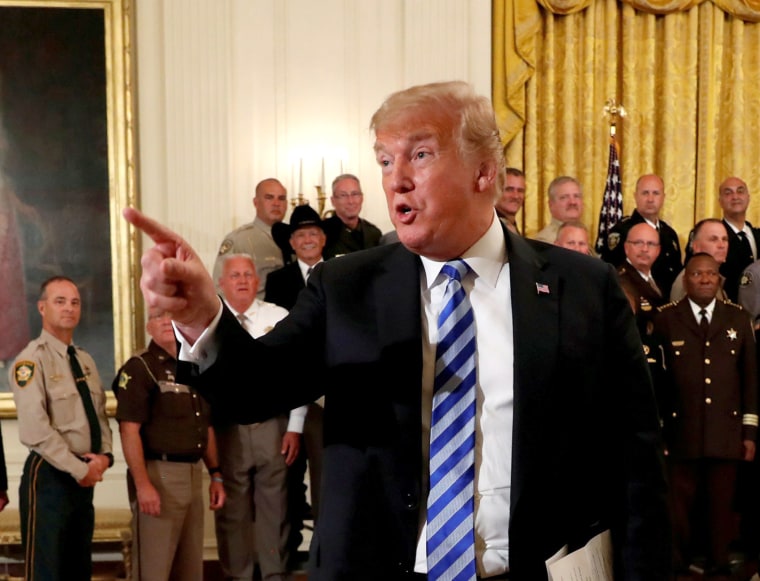WASHINGTON — President Donald Trump is asking whether the person who wrote the anonymous op-ed in The New York Times has committed treason.
That's easy: No. It could be considered an act of disloyalty, which is not a crime, but it's definitely not treasonous.
House Minority leader Nancy Pelosi, D-Calif., mocked Trump on Thursdday, saying his claims of treason was "a manifestation of his instability."
Treason, the only crime defined in the Constitution, consists of levying war against the United States or "adhering to" to an enemy, giving "aid and comfort." The Constitution does not specify a penalty, but a federal law does — anything from five years in prison to death.
"Enemy" means a country or an entity that has declared war or is in a state of open war against the U.S. "Aid and comfort" must be something material, not words of encouragement. The op-ed article fails both those tests.
It gives nothing material, and it is not in aid of an enemy.
That "enemy" element of treason is very significant.
For example, Julius and Ethel Rosenberg, executed in 1953 after they were convicted on espionage charges for passing U.S. atomic bomb secrets to the Soviet Union, could not be charged with treason because the Soviets were not considered enemies.
No one has been convicted of treason in the U.S. in 66 years. The last few cases involved Americans who aided Germany and Japan during World War II.
